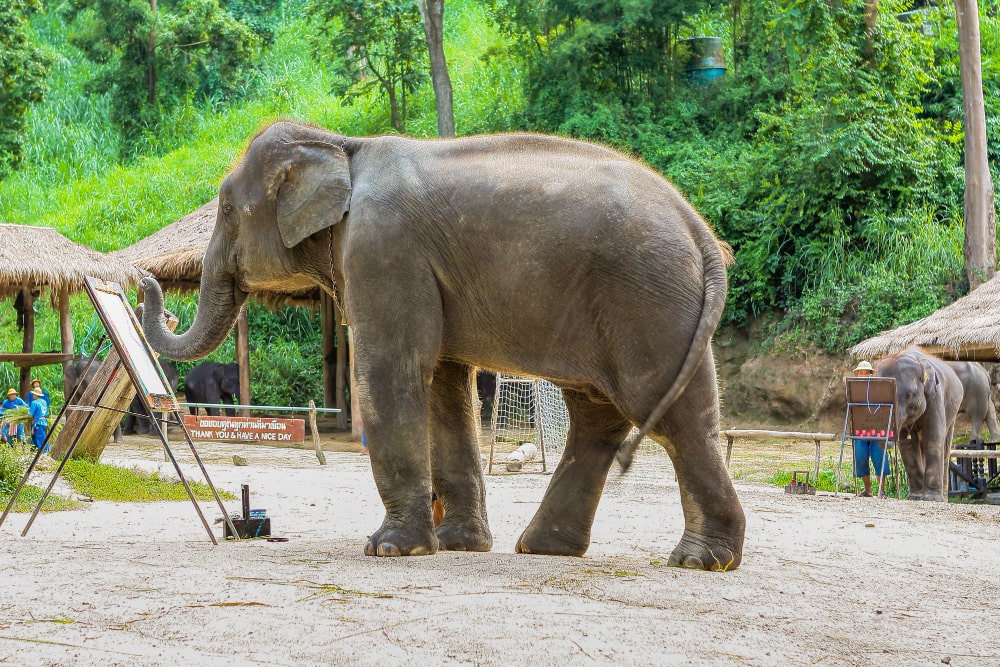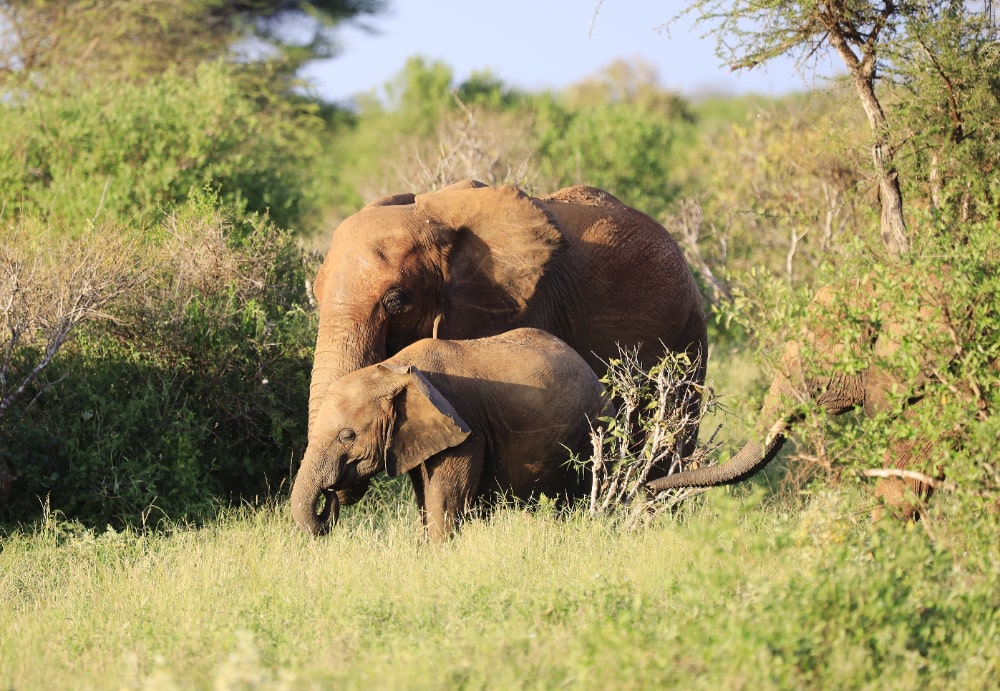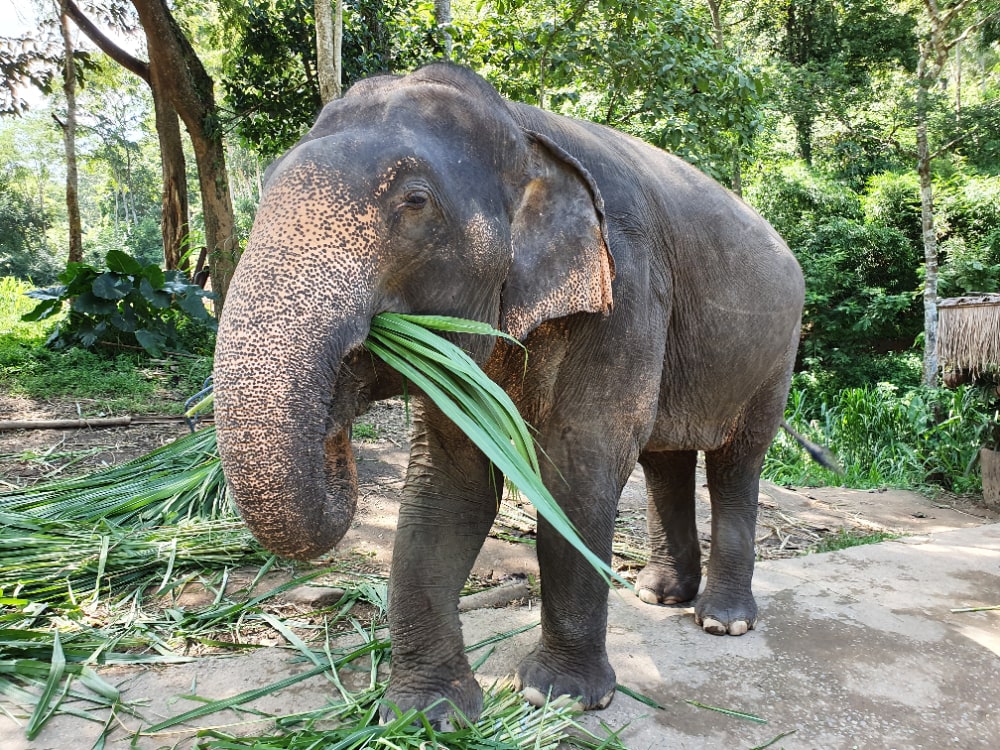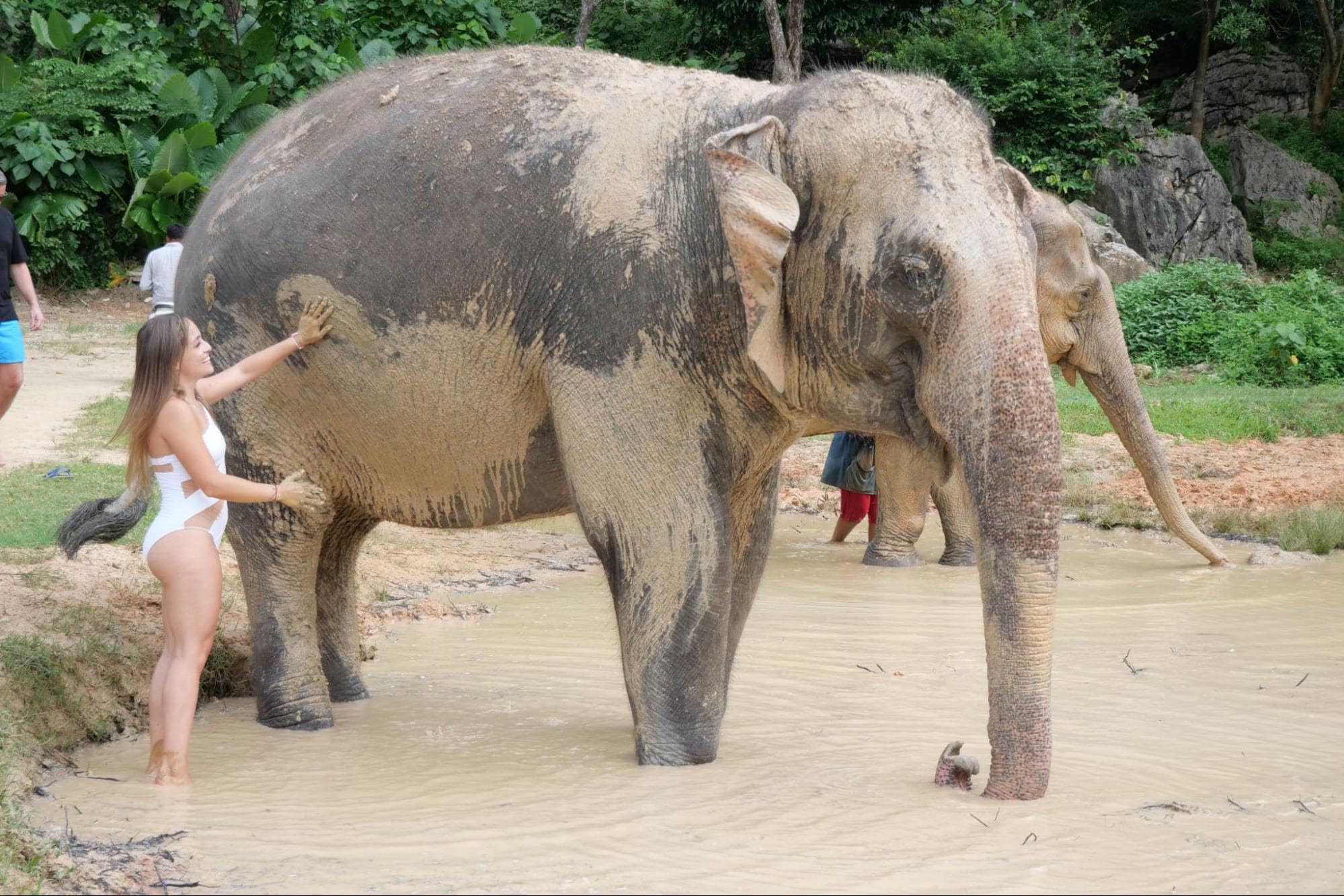Don’t you want to know the truth about Elephant life expectancy? These elephants are super intelligent and have varying lifespans based on their species, habitat, and care. Let’s uncover the truth about elephant life expectancy together!
Average Elephant Life Expectancy by Species
There are two main species of elephants: African elephants and Asian elephants. Each species has a different life expectancy.
- African Elephants: The African elephants, living in savanna and forest elephants, typically live around 70 years in the wild.
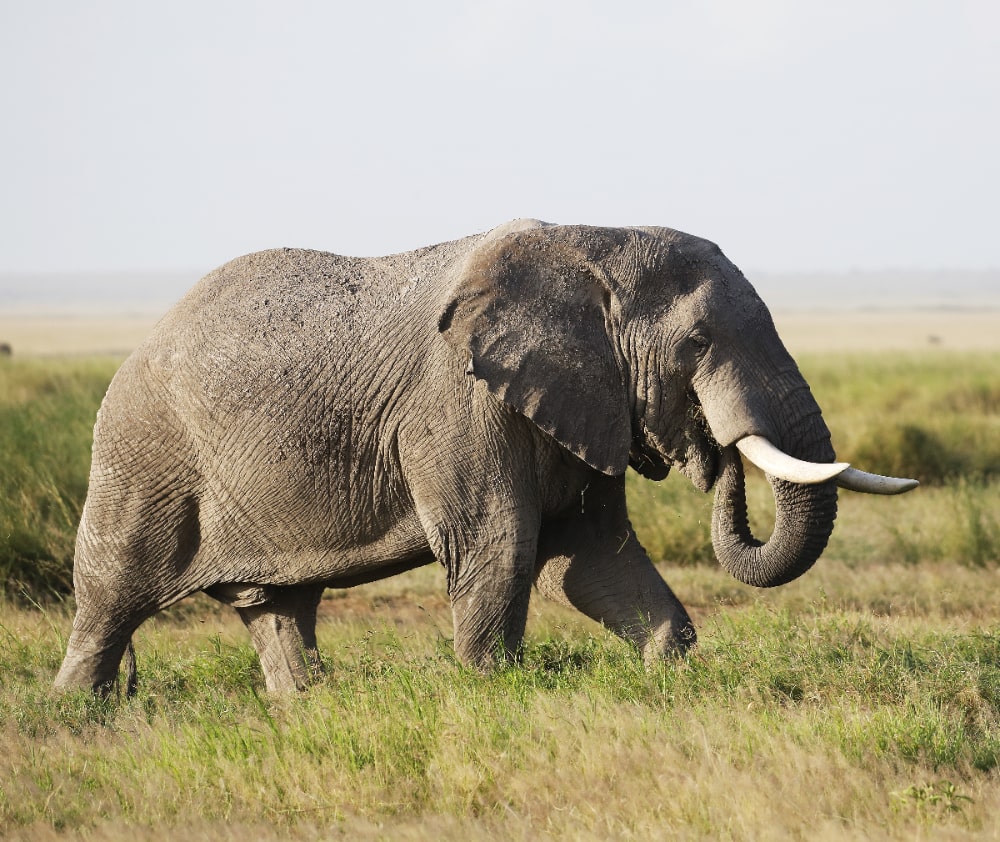
- Asian Elephants: Asian elephants are slightly smaller and have a lifespan around 60 years, with some asian elephants surpassing these averages under ideal conditions.
Want to know more about African elephants VS Asian elephants?
Click here! >> The Differences Between Asian Elephant vs African Elephant
Meet The Oldest Elephant Ever – Vatsala of Panna
Vatsala of Panna is the oldest elephant that lived at 105 years old! Vatsala’s long life highlights the impact of proper care and conservation efforts. Her story serves as an inspiration to protect elephants and their habitats for future generations.
“Wild vs. Captivity”: A Factor That Differentiates Elephant Life Expectancy
A key factor that can change elephant life expectancy is whether they live in the wild or captivity.
Wild Elephants
In their natural habitats, elephants face threats such as poaching, habitat destruction, and human-elephant conflicts. However, they benefit from a natural diet, free areas to wander around and about, and social interactions, which are crucial to prolong elephant life expectancy.
Wild Elephants Life Expectancy Factors:
- Predation and Poaching: Young elephants are vulnerable to predators like lions and crocodiles, while adults often get hunted for ivory.
- Habitat: Access to water and food sources can affect elephant life expectancy
- Social Structure: Herds led by experienced matriarchs improve survival chances.
Captive Elephants
Captive elephants, such as those in zoos or sanctuaries, face different challenges. While protected from predators, their longevity depends on the quality of care they receive. There are also studies that show that wild elephants often live longer than those in captivity due to factors like obesity and stress.
Captive Elephants Life Expectancy Factors:
- Diet: An unbalanced diet can lead to obesity or malnutrition.
- Exercise: Limited space can lead to various health issues, including joint pain, cracked toenails, overgrown soles, osteomyelitis, joint ankylosis, and osteoarthritis.
- Mental Stimulation: Lack of enrichment activities can result in stress and behavioral issues.
- Activity: Some activities, like elephant riding (if done improperly), can cause spinal damage, which may negatively affect an elephant’s health and shorten its lifespan in the long run.
How Care, Diet, and Environment Shape Elephant Longevity
Proper Care
Consistent veterinary care, vaccinations, and parasite control significantly enhance elephant life expectancy. In captivity, the quality of human care is very important for their longer elephant life expectancy.
Balanced Diet
Elephants consume up to 150 kilograms of vegetation daily.
- African elephants typically eat fresh grasses, fruits, twigs, roots, and leaves
- Asian elephants also enjoy grasses and leaves, sugarcane, bananas, and a variety of fruits.
In captivity, a processed or monotonous diet can negatively impact their health and shorten their lifespan.
Natural Environment
The more a captive environment similar to the wild, the better. Spacious enclosures, social interactions, and access to natural landscapes can extend their health and longevity. Certified sanctuaries from ACES can at least guarantee that the environment is suitable for elephants.
Check out ACES certified sanctuaries here:
– Ao Nang Elephant Sanctuary: Where Ethics and Excellence Meet
– Discover Krabi Elephant Shelter: ACES Certified Ethical Sanctuary
You Can Help Elephants Live Longer Lives
Elephants deserve a life filled with care, respect, and protection. Supporting ethical shelters and conservation efforts can improve their living conditions and extend their lifespan. Your small involvement can make a big difference for these gentle giants!
Book your trip to Krabi Elephant Shelter now!
Phone: (+66) 98 671 5336
Email: [email protected]
Book directly at krabielephantshelter.com

